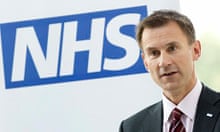When you step out of the NHS for a year, as I have, the inefficiencies, difficulty in getting appointments, and disgruntled patients fade into insignificance. Working as a doctor in Kolkata in India, a city where poverty is endemic and healthcare scarce, provides a new perspective on the NHS. I now see how a publicly funded healthcare system creates an optimal environment for ethical decision-making. Nowhere is this more apparent than in end-of-life care.
In West Bengal there is no government palliative care policy or funding, so services rely on charitable organisations and private hospitals. Dr Dam is a palliative care doctor who has established his own NGO. He says referral rates are low and “oncologists have this attitude of ‘not letting go’ of their patients”. He argues that this is due to misconceptions about palliative care and economic factors including consultation fees, benefits from pharmaceutical companies and financial rewards for investigations.
The Indian healthcare system is one of the most privatised in the world and is largely unregulated. A recent report in the BMJ by Dr Gadre, from Kolkata, exposed the extent of malpractice. He interviewed 78 doctors and found that kickbacks for referrals, irrational drug prescribing and unnecessary interventions are commonplace. In corporate hospitals doctors are pressurised to generate profit by performing unnecessary operations or procedures such as angioplasties. This undermines a fundamental medical ethic of “first, do no harm”. It is alarming that doctors “succumb to the pressures and get involved in these rackets”, as Gadre puts it. Those who do practise ethically cannot sustain their careers in these institutions.
I work in a private not-for-profit hospital with a philanthropic ethos. Twenty per cent of the adult beds are free for the poorest patients. However, it is still a business and requires bed occupancy to be high and state-of-the-art equipment to be used. Many palliative measures such as symptom-controlling medications, good nursing care, communication and compassion, are inexpensive. I am aware of the conflict of interests when I challenge treatment decisions, such as admitting a terminal patient to intensive care to die a prolonged costly death.
I looked after a young man with multiple myeloma, paralysis and the worst bedsore I have ever seen eroding through his left buttock to the bone. When I first met him he was smiley with a gentle manner and few complaints. Over a month his physical condition and spirit declined. When he developed a severe infection, his wife was the one to say “I think he is dying”. She was right, and a plan was made to withhold antibiotic and continue symptomatic treatment. The next morning I found he had been admitted to intensive care overnight. He had had a central line inserted, was hooked up to monitoring with pumps delivering expensive antibiotics and medication to maintain his blood pressure. He was no longer able to communicate, semi-conscious and distressed. His family was only allowed to visit for a few hours each day. Despite my best efforts the treatment continued until he died a week later.
Witnessing patients dying painful, undignified and expensive deaths on intensive care was one of the reasons Dam re-trained in palliative care after 13 years working as a specialist in critical care medicine. Striving for cure regardless of the patient’s quality of life is propagated by the medical culture, miscommunication, false reassurances and the market healthcare economy. Many families are landed with huge debts as a result. According to the Lancet, medical costs drive 39 million Indians into poverty every year.
The NHS is not perfect; patients at the end of life are still at risk of over-treatment and hospitalisation when they would rather be at home. However, NHS hospitals would rarely admit to intensive care a person with a terminal illness in the last days of their life.
India is a stark example of how commodifying healthcare can lead to corruption, erode doctors’ integrity and damage relationships with patients. Money ultimately distorts decision making regardless of the culture or country. In the UK there is a system that supports ethical decision making, regulates practice and ensures patients’ best interests are at the heart of NHS care, and we must fight to preserve this. Market forces, competitive healthcare and the selling of lucrative sections of NHS care to the private sector are solutions we embrace at our peril.





